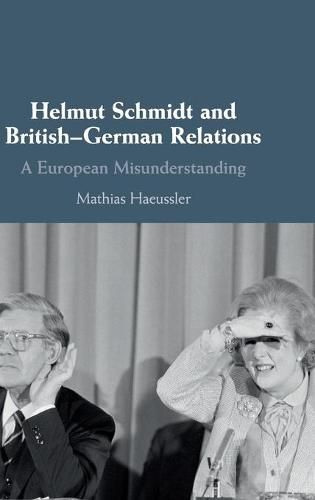Readings Newsletter
Become a Readings Member to make your shopping experience even easier.
Sign in or sign up for free!
You’re not far away from qualifying for FREE standard shipping within Australia
You’ve qualified for FREE standard shipping within Australia
The cart is loading…






The former West German chancellor Helmut Schmidt grew up as a devout Anglophile, yet he clashed heavily and repeatedly with his British counterparts Wilson, Callaghan, and Thatcher during his time in office. Helmut Schmidt and British-German Relations looks at Schmidt’s personal experience to explore how and why Britain and Germany rarely saw eye to eye over European integration, uncovering the two countries’ deeply competing visions and incompatible strategies for post-war Europe. But it also zooms out to reveal the remarkable extent of simultaneous British-German cooperation in fostering joint European interests on the wider international stage, not least within the transatlantic alliance against the background of a worsening superpower relationship. By connecting these two key areas of bilateral cooperation, Mathias Haeussler offers a major reinterpretation of the bilateral relationship under Schmidt, relevant to anybody interested in British-German relations, European integration, and the Cold War.
$9.00 standard shipping within Australia
FREE standard shipping within Australia for orders over $100.00
Express & International shipping calculated at checkout
The former West German chancellor Helmut Schmidt grew up as a devout Anglophile, yet he clashed heavily and repeatedly with his British counterparts Wilson, Callaghan, and Thatcher during his time in office. Helmut Schmidt and British-German Relations looks at Schmidt’s personal experience to explore how and why Britain and Germany rarely saw eye to eye over European integration, uncovering the two countries’ deeply competing visions and incompatible strategies for post-war Europe. But it also zooms out to reveal the remarkable extent of simultaneous British-German cooperation in fostering joint European interests on the wider international stage, not least within the transatlantic alliance against the background of a worsening superpower relationship. By connecting these two key areas of bilateral cooperation, Mathias Haeussler offers a major reinterpretation of the bilateral relationship under Schmidt, relevant to anybody interested in British-German relations, European integration, and the Cold War.